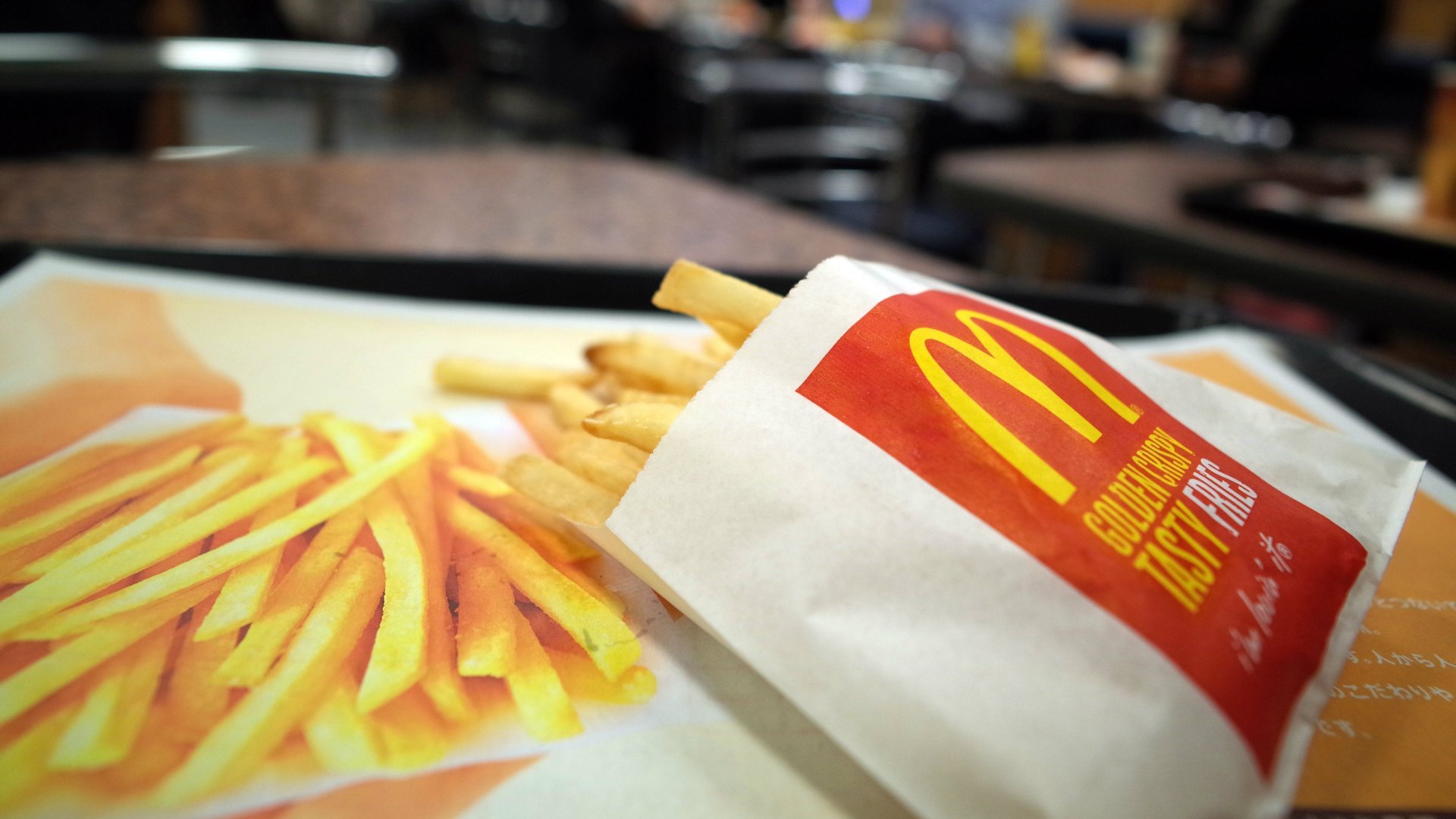McDonald’s franchisees are speaking up, and the company should listen
It’s not just McDonald’s employees who have a beef with the burger chain: The company’s franchisees—the people actually running about 90% of the restaurants—aren’t very happy with HQ either, a new survey from Janney Capital Markets found.


It’s not just McDonald’s employees who have a beef with the burger chain: The company’s franchisees—the people actually running about 90% of the restaurants—aren’t very happy with HQ either, a new survey from Janney Capital Markets found.
In the survey, conducted in January and March of this year, respondents rated their six-month outlook for the business as the lowest ever in the report’s 11-year history. On a scale of 1 (poor) to 5 (excellent), franchisees’ six-month business outlook averaged a 1.81—which Janney points out is “meaningfully below the 2.8 average result over the history of the survey.”
McDonald’s downplayed the survey results, telling Quartz that its small sample size—32 McDonald’s operators who own a collective 215 restaurants—discredits the findings. “Approximately 3,100 franchisees own and operate McDonald’s restaurants across the US. Less than 1% of them were surveyed for this report. We value the feedback from our franchisees and have a solid working relationship with them.”
Still, times have been undeniably tough all around for McDonald’s: In January it posted its eighth straight quarter of declining sales, despite attempts to revive itself, including a new CEO and menu changes aiming for a higher-brow customer. It is facing stiff competition, both on the fast casual side with Chipotle and its ilk and on the fast food side, as Taco Bell takes aim at its breakfast patrons. It recently responded to complaints about low wages for fast food workers with a raise, but many noted quickly that it didn’t apply to workers in franchised locations. And earlier this week, the chain’s underperforming Japanese arm announced that it would close 131 stores.
The complaints from the 32 operators surveyed for the report included the following:
“McDonald’s system is broken… We will continue to fall and fail.”
“There is just no momentum.”
“Weak marketing, negative media, general sense of confusion and disorder, strong competitive marketing.”
In rating their relationship with the corporation, franchisees were even more sour, with an average response of 1.48—a drop from the average of about 2.1 over the survey’s history.
The survey also asked whether the franchisees saw hurdles to participating in “McDonald’s Experience of the Future,” the company’s plan to stay relevant in a changing marketplace, presented at its ”turnaround summit.” Respondents were not optimistic:
“Take away… there was a fair amount of confusion about the future, but it is going to be expensive for operators.”
“Massive hurdles, as we don’t know what the plan is, the cost, and the contribution (if any) that corporate will supply…”
“I came away from the summit completely confused. McDonald’s management does not know what we want to be. Expensive (and slow) custom burgers in the same restaurant where we sell the Dollar Menu?”
The report shines a light on what is usually a dark corner of the company’s enterprise, says Cathy Ruckelshaus, General Counsel and Program Director of the National Employment Law Project. McDonald’s exerts significant control over franchisee restaurants, and has the ultimate say in whether they can continue to operate. This makes public criticism rare, says Ruckelshaus. Franchisees have “very little bargaining power vis-a-vis McDonald’s,” she says. “They don’t want to get in hot water.”
Of course, it’s impossible to know whether the franchisees surveyed accurately represent the views of most McDonald’s franchisees. But for now they’re the only ones talking.